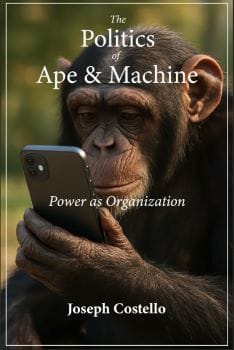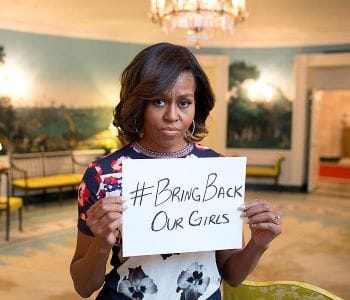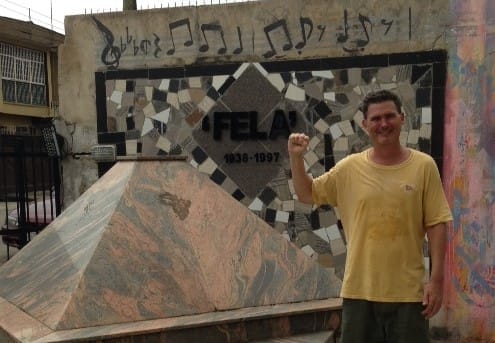Nigeria

It was no mistake that four years ago the inaugural piece of Life in the 21st Century concerned Nigeria. The piece was about Nigerian writer Wole Soyinka’s just released novel, Chronicles from the Land of the Happiest People on Earth. I concluded,
“Soyinka's work is brilliant satire of our contemporary world, though doubtful it will be appreciated in the US. Americans incapacity to appreciate satire stems from their refusal to look honestly at power, thus we are incapable of effecting healthy, desperately needed change. Presented with any given reality contradicting any held belief, defaced beliefs endlessly propagated in the interests of established power, Americans retort the presenter is being cynical or negative. Americans strongly believe they live in the best of all possible worlds, which gets to the great flaw of Soyinka's work, the land of the happiest people on earth isn't Nigeria, it's the United States.”
It’s never good when Nigeria blips onto the ephemeral collective mindscape of America. So, you knew last weekend, when Nigeria passed the lips of the president, nothing good could come of it. After all, in his first term, he referred to the nations of Africa as “shithole countries.” In this and in contrast to the criticisms of the president’s innumerable detractors, he accurately represents the thinking of the vast majority of Americans, a mindset entrapped in deliberate and cherished ignorance. Welcome to America in the 21st century.
The president repeated a ridiculous slander. I had seen it a few weeks before, drivel from the mouth of one of America’s official court jesters, who substitute for any real politics in America. Christians were being systematically persecuted in Nigeria exclaimed the well compensated HBO propagandist. He even spouted the “G” word. Most ridiculous were the numbers used. If you have any experience with Nigeria, this was a number you knew was simply not gettable. Worst, I looked it up. The number came from some crazy Brit Christian group and propagated on the Senate floor by none other than crazy Christian Ted Cruz.
When the president threatens violence against Nigeria based on idiocy, first you think, well, it's a long tradition; Obama’s chemical weapons in Syria, W’s nukes in Iraq, phantom boats in Vietnam, or go back another century and remember the Maine in Cuba. It never gets easier to swallow. American militarism in Nigeria, it wouldn’t be the first time. After all, for almost three decades, American oil consumption funded Nigeria’s military junta. For years, every time an American filled their car's gas tank, a gallon came from the Niger Delta. The money went back to fund an ignoble, infamous, and brutal military dictatorship. How many Americans ever understood that? Not many, certainly never the president.
Nigeria is a fascinating country, an amazingly diverse people, comprised of hundreds of ethnicities, languages, and religions. It’s one of many places on the planet yet to industrialize. As a result, Nigerian resource and energy use per person is about one-tenth that of any American on any given day. As far as life goes in Nigeria compared to these United States, that simple consumption fact makes all the difference.
Nigeria is a happenstance nation. Its borders drawn up a century and half ago in the halls of European colonial powers. The lines of Nigeria, as those across the whole African continent, have always been problematic. Fifty years ago, the Biafrans found them existentially so.
Nigeria is somewhat distinct on the planet as a nation with a relatively equal number of followers of two of the three Abrahamic religions, Christians and Muslims. Precise numbers no one really knows. In its 65 year history, Nigeria only did one census, in 2006. Maybe the only thing everyone in Nigeria agrees on is that census was completely worthless. The first thing you ask whenever you see any number out of Nigeria is, “Is that number gettable?” Which brings up an interesting, overlooked fact about what’s known as the Global South, the non-industrial, the less developed parts of this planet, whatever you care to label it, they all lack any sort of comprehensive information infrastructure. Of course, we here in the US are realizing, not nearly quickly enough, the problems inflicted by a malignant information infrastructure.
What can certainly be said is the Muslim population is largely in the north and the Christian population largely in the south. The north of Nigeria is the Sahel, the great expanse of the southern Sahara, where over a thousand years ago Islam first crossed into present Nigeria. Christianity is a more recent, five centuries ago, import, inflicted by Europe’s vast fleet of predator sailing ships scavenging Nigeria’s tropical and beautiful southern coast.
Over time, desertification increased and the Sahel expanded south. This has been a particular problem for many of Nigeria’s pastoralists and their herds of cattle. None more so than the Fulani people, who have long been pastoralists spread across the great east/west, continent-wide, expanse of the Sahel. In the 19th century, until the Brits deposed them, the Fulani Sokoto Caliphate ran much of what today is Nigeria.
More or less, greater than 50% of Nigeria’s population is still rural – subsistence farmers, fisherman, and pastoralists. So when the pastoralists of the north, many Fulani, due to increasing desertification of the last several decades, start bringing their herds south, well, that brings all sorts of problems for small farmers. A couple hungry bovines can devastate a half-hectare of crop rather quickly. The steers care not whether it’s a Christian or Muslim field.
Unfortunately, Nigeria has also been afflicted with the jihadi scourge of modern Islam. Just as across the rest of the globe, jihadis’ victims are overwhelming Muslim. Borno, the state where the Boko Haram’s jihadi insurgency is centered, overwhelmingly Muslim. Over a decade and half, Boko Haram’s causalities have been overwhelmingly Muslim.
My first time in Nigeria was 2014 – 2015. I was working with President Goodluck Jonathan’s reelection effort. Boko Haram was a big issue. The office I worked in was a couple blocks down the street from a just bombed shopping center in Abuja, Nigeria's capital. In hindsight, this bombing proved to be Boko Haram’s greatest reach. The office was also right across the street from the Yoruba Mosque. Friday afternoons, heading to lunch, I’d walk through crowds going to worship.
Boko Haram was a big campaign issue. The government's response appeared paralyzed. Jonathan was from the south, Bayelsa state, home of Nigeria’s first oil well drilled in the late 1950s. There was a mindset among many of the south that Boko Haram was a northern problem. Why couldn’t the north get these guys sorted? Boko Haram also became an issue in the US, including a rather sad social media publicity campaign where the then first lady claimed she too was one of Boko Haram’s victims.

Now, it’s unclear what the US military’s role was in the Nigerian counter-insurgency effort. We were certainly there and largely ineffective. Election campaign wise, trying to get Jonathan to address the issue was largely hopeless. Then, in February, 2o15, a weird thing happened. As I sat in my office in Abuja, reading through the half-dozen Nigerian newspapers I scrolled every day, scattered press accounts started appearing that Boko Haram was being rolled back by the Nigerian army in Borno.
Over the next few weeks, the reports became more frequent. I asked a number of people in the office, “Is this true?” They all sort of shrugged. It turned out to be true, but too late to have any impact with voters, who looked at Boko Haram as just another example of a widely perceived haplessness surrounding Jonathan. Jonathan lost the election, but by the time he left office two months later, Boko Haram had been stomped.
A few months later, it came out the Nigerians had hired a bunch of old apartheid South African security forces who had become mercenaries. I was told afterwards the South Africans came in and ripped up the army’s American counter-insurgency manuals. The South Africans’ strategy was simple, once the army engaged Boko Haram anywhere, you didn’t disengage until they were all dead.
Jonathan never got credit for his destruction of Boko Haram. In one of those nasty quirks of history, his successor, former military dictator Muhammadu Buhari received the accolades. Buhari was Fulani. During the campaign, addressing charges of wealth accumulated from his years in politics, Buhari claimed he only had 40 cattle, a respectable, but by no means an ostentatious Fulani substance. People in the south, found that statement hilarious, nonetheless many complained in the following years, Fulani herders were given literal free range.
If we look at American ignorance and our previous military engagements with Nigeria – the three decades of our oil addiction funding a brutal, repressive, and development restrictive military junta and more recently with Boko Haram – the last thing Nigeria or the US needs is our president talking of militarily reengaging.


